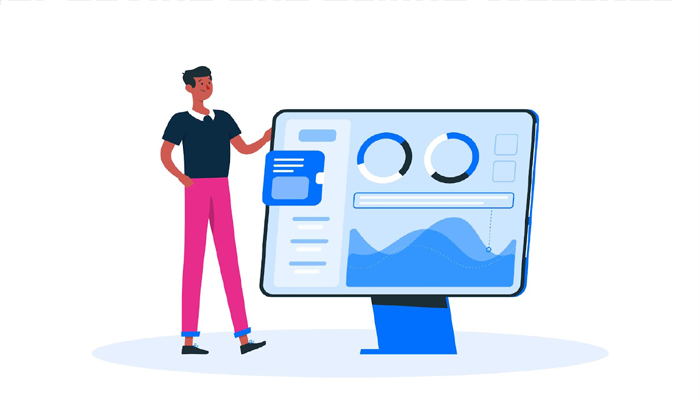Buying a money-making website has become one of the smartest ways to build passive income in today's digital economy. Instead of spending months or years building a website from scratch, you can purchase an already profitable site and start earning immediately.
But here's the thing – not all money-making websites are created equal. Some are goldmines waiting for the right owner, while others are ticking time bombs that could drain your bank account faster than you can say "traffic drop."
If you've been thinking about buying a profitable website but don't know where to start, you're in the right place. This guide will walk you through everything you need to know about purchasing money-making websites, from finding legitimate opportunities to avoiding costly mistakes.
Why Buy Instead of Build?
Building a profitable website from zero is like planting a tree and waiting for fruit. It takes time, patience, and there's no guarantee it'll work. When you buy an established money-making website, you're purchasing something that's already bearing fruit.
The advantages are compelling. You get immediate cash flow, proven traffic sources, established content, and existing systems. Most importantly, you can see exactly how much money the site makes before you buy it – there's no guessing involved.
Think about it this way: would you rather spend two years trying to build a website that might make $2,000 per month, or buy one that's already generating that income today?
Types of Money-Making Websites You Can Buy
Content Websites and Blogs
These sites make money through advertising, affiliate marketing, and sponsored content. A food blog with 100,000 monthly visitors might earn $3,000-$8,000 monthly through display ads and affiliate commissions from kitchen products.
Content sites are often easier for beginners to manage since they don't require complex technical skills or inventory management. The key is finding sites in niches you understand or are passionate about learning.
E-commerce and Dropshipping Sites
Online stores can be incredibly profitable, especially those with established supplier relationships and customer bases. An e-commerce site selling outdoor gear might generate $15,000 monthly with $4,000 in net profit after all expenses.
These sites typically require more hands-on management but can scale rapidly with the right marketing and product strategies.
Software as a Service (SaaS) Websites
SaaS businesses with recurring revenue models often command premium prices because of their predictable income streams. A simple project management tool with 200 paying customers at $50/month generates $10,000 in monthly recurring revenue.
While SaaS sites can be more complex to operate, they often provide the most stable and scalable income streams.
Affiliate Marketing Sites
These websites promote other companies' products and earn commissions on sales. A well-optimized affiliate site in the personal finance niche might earn $5,000-$15,000 monthly promoting credit cards, investment platforms, and financial tools. Affiliate sites can be relatively low-maintenance once established, making them attractive for passive income seekers.
Evaluating a Money-Making Website: Due Diligence Essentials
Revenue Verification
Never take revenue claims at face value. Request access to actual payment processor accounts, Google AdSense dashboards, or affiliate network reports. Screenshots can be easily manipulated, but direct access to revenue sources tells the real story.
Look for consistent income over at least 12 months. A site that made $10,000 last month but only $1,000 the month before is likely experiencing temporary success rather than sustainable income.
Traffic Analysis
Traffic is the lifeblood of most money-making websites. Request access to Google Analytics to verify visitor numbers, traffic sources, and user behavior. Pay special attention to:
- Traffic trends: Is traffic growing, stable, or declining?
- Traffic sources: How dependent is the site on Google search traffic?
- Seasonal patterns: Does the site experience significant seasonal fluctuations?
- User engagement: Are visitors spending time on the site or bouncing immediately?
Be wary of sites heavily dependent on social media traffic or paid advertising, as these sources can disappear overnight.
Content Quality and Originality
High-quality, original content is crucial for long-term success. Use tools like Copyscape to check for plagiarism, and evaluate whether the content provides genuine value to readers.
Sites with thin, low-quality content are vulnerable to Google algorithm updates that could devastate traffic and revenue overnight.
Technical Infrastructure
Even if you're not technically inclined, basic technical health matters. Check page loading speeds, mobile responsiveness, and overall user experience. A slow, clunky website will struggle to maintain traffic and conversions regardless of its current success.
Competitive Landscape
Research the competition in the site's niche. Is it a crowded market with many established players, or does the site have a unique angle? Understanding competitive dynamics helps you assess long-term viability and growth potential.
Understanding Website Valuations
Most money-making websites sell for 24-48 times their monthly net profit. A site earning $5,000 monthly might sell for $120,000-$240,000, depending on various factors that affect the multiple:
Higher multiples typically apply to:
- Stable, growing traffic and revenue
- Diversified traffic and income sources
- Passive income models requiring minimal work
- Strong brand recognition and customer loyalty
- Scalable business models with growth potential
Lower multiples often indicate:
- Declining traffic or revenue trends
- Heavy dependence on single traffic or income sources
- High maintenance requirements or technical complexity
- Seasonal or cyclical income patterns
- Competitive vulnerability or market saturation
Negotiation Strategies That Work
Start with Smaller Deals
If you're new to website acquisition, start with smaller purchases to learn the process. Buying a $15,000 website teaches you the same lessons as a $150,000 purchase but with much lower risk.
Focus on Motivated Sellers
Sellers who need to close quickly often accept lower offers. Look for listings that have been on the market for several months, or sellers who mention time constraints or life changes driving the sale.
Bundle Deals
Some sellers own multiple websites and might offer package deals. Buying several related sites can provide economies of scale and cross-promotion opportunities.
Seller Financing Options
Many website sellers are open to financing arrangements where you pay over time rather than all upfront. This reduces your initial capital requirements and often motivates sellers to ensure smooth transitions.
Red Flags to Avoid
Inflated Traffic Claims
Be suspicious of sites claiming massive traffic increases in recent months without clear explanations. Fake traffic is easy to generate but worthless for monetization.
Overreliance on Single Revenue Sources
Sites making 90% of their income from one affiliate program or advertising network are extremely vulnerable. What happens if that income source disappears?
Suspicious Seller Behavior
Sellers who won't provide verification, rush you to decide, or can't answer basic questions about their site's operations should raise immediate red flags.
Legal and Copyright Issues
Ensure the site owns all its content and hasn't violated any copyrights or trademarks. Legal problems can be expensive and time-consuming to resolve.
The Purchase Process: Step by Step
1. Initial Evaluation
Review the listing details and basic metrics. If the opportunity looks promising, request additional information like traffic reports and revenue documentation.
2. Letter of Intent
For larger purchases, submit a non-binding letter of intent outlining your offer terms. This shows serious interest while allowing flexibility for negotiation.
3. Due Diligence Period
Most agreements include a due diligence period where you can thoroughly investigate the website. This is your time to verify all claims and identify any issues.
4. Final Negotiations
Based on your due diligence findings, finalize the purchase price and terms. Don't be afraid to renegotiate if you discover problems during your investigation.
5. Asset Transfer
The seller transfers the website, domain, social media accounts, and any related assets. Use escrow services for transactions over $5,000 to protect both parties.
6. Transition Period
Many sellers provide transition support to help you understand the business operations. Take advantage of this knowledge transfer period.
Maximizing Your Website Investment
Immediate Improvements
Look for quick wins that can boost revenue without major changes. This might include optimizing ad placements, improve affiliate link conversion, or fixing technical issues affecting user experience.
Content Expansion
Most websites can benefit from additional high-quality content. Expanding content in profitable niches often leads to increased traffic and revenue.
Monetization Optimization
Experiment with new revenue streams while maintaining existing income sources. A content site might add email marketing, while an e-commerce site could explore subscription models.
SEO Enhancement
Improving search engine optimization can dramatically increase organic traffic. Focus on technical SEO fixes, content optimization, and building quality backlinks.
Common Mistakes New Website Buyers Make
Buying on Emotion
It's easy to get excited about a website's potential and overlook red flags. Stick to your evaluation criteria and don't let emotions drive purchasing decisions.
Underestimating Time Requirements
Even "passive" websites require some maintenance. Underestimating time commitments can lead to neglect and declining performance.
Neglecting Ongoing Costs
Factor in hosting, tools, content creation, and marketing expenses when calculating profitability. These ongoing costs can significantly impact your returns.
Changing Too Much Too Fast
Successful websites have established systems and audiences. Making dramatic changes immediately after purchase can disrupt what's already working.
Legal and Tax Considerations
Business Structure
Consider how website ownership fits into your overall business structure. LLCs or corporations can provide liability protection and tax advantages.
Tax Implications
Website purchases may be treated as business acquisitions for tax purposes. Consult with accountants familiar with digital asset transactions to optimize your tax situation.
Asset Protection
Diversify your website portfolio across different niches and revenue models to protect against market changes or algorithm updates affecting single sites.
Building Your Website Portfolio
Start Small and Scale
Begin with one or two smaller websites to learn the ropes, then gradually build a portfolio of complementary sites. This approach spreads risk while building expertise.
Diversification Strategy
Avoid putting all your eggs in one basket. Mix different types of sites, niches, and revenue models to create a more stable income stream.
Reinvestment Planning
Use profits from existing sites to fund additional acquisitions. This compound growth strategy can rapidly build wealth through strategic website investments.
The Future of Website Acquisition
The website acquisition market continues to mature, with more professional buyers and sellers entering the space. This professionalization means better due diligence processes and more transparent transactions, but it also means increased competition for quality deals.
Successful website buyers of the future will need to be more sophisticated in their evaluation processes and quicker to identify and act on opportunities. The days of easily finding undervalued websites are ending, but opportunities still exist for informed buyers.
Taking Action: Your Next Steps
Buying a money-making website isn't just about generating passive income – it's about building a digital asset portfolio that can provide financial freedom and flexibility. The key is starting with solid fundamentals and learning from each transaction.
Begin by studying listings on major marketplaces to understand pricing and what's available in your areas of interest. Set a budget for your first purchase and stick to it. Remember, your first website acquisition is a learning experience as much as an investment.
The website acquisition market rewards prepared buyers who do their homework and act decisively when opportunities arise. With proper due diligence and realistic expectations, buying money-making websites can be your path to building sustainable online income.
Start small, learn continuously, and gradually build a portfolio of digital assets that work for you around the clock. The internet never sleeps, and neither do well-chosen money-making websites.
Ready to Start Your Website Acquisition Journey?
Whether you're ready to sell your profitable website or looking to buy your first money-making online business, the right platform makes all the difference. Don't waste time on marketplaces filled with low-quality listings and unrealistic valuations.
Are you ready to sell or buy? Join thousands of serious website investors and sellers who trust professional platforms for their digital asset transactions.
Log in to AcquireYet.com - Where serious buyers meet serious sellers. Start building your website portfolio today or get top dollar for your digital assets.




















